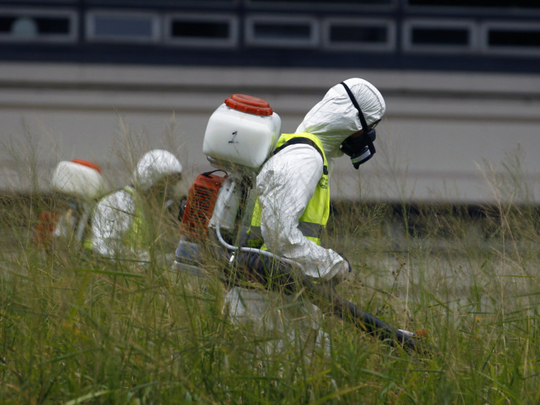
The Zika virus, currently declared as an “explosive” outbreak in parts of South Americas, has the world’s heartbeat raised. Is Zika going the way of Ebola? World media is urging the World Health Organisation to show more alacrity in tackling Zika and for the long-term, calling for better vaccine development policies, particularly for the poor populations in the world.
The Jamaica Observer’s editorial says it’s only a matter of when regarding the arrival of Zika in the country. “Word that World Health Organisation (WHO) officials have said that the Zika virus (ZIKV) is “spreading explosively” in the Americas is not very comforting, especially to people living in this region.
“Thankfully, so far in Jamaica, we have not received any reports of the condition. While we appreciate the right of people to choose to procreate, we certainly would not wish for the expectations associated with the birth of new life to be deflated in any way.
Therefore, every Jamaican should consider it their duty to ensure that mosquito-breeding sites are destroyed. The Government, to its credit, is doing its part by implementing proactive measures to prevent the virus spreading, as was the case with CHIKV.
“But this is not a job for the government alone. We all have a role to play,” it urges.
In India, Hindustan Times is smilarly wary of Zika’s arrival on India’s shores. Its editorial says, “In this interconnected world where an outbreak is a flight away, India has reason to fear Zika.
“Though the traces of the virus were detected across six Indian states in 1952-53, outbreaks haven’t happened and the population’s immunity against this new scourge is likely to be low. With 26 million babies born in India each year, the government and civic authorities need to snap out of their complacency and declare a war against the Aedes aegypti mosquito. This will not only protect thousands of newborns from brain damage but also end the seasonal scourge of dengue and chikungunya.”
Sydney Morning Herald emphasises on the need to rethink the approach to vaccine development, particularly to do with the poor populations in the world. Its editorial says, “The Zika outbreak has underlined the need for further reform of the WHO, including the formation of a specific agency within it with the ability to rapidly respond to disease outbreaks that outstrip national capacities. And it must be properly resourced. Zika has also reminded us of the risks we take relying on the existing system of vaccine development, which neglects viruses that affect the poor in the developing world because there is likely to be little profit in addressing them. But as Zika’s apparently rapid mutation and expansion has shown, we neglect such diseases in our increasingly interconnected, urbanised and warming world at our peril.”
The Irish Times too has a message for WHO. Says its editorial: “The WHO has been rightly criticised for its slow initial response to the recent outbreak of Ebola infection in West Africa. And while the high mortality of that virus is unlikely to be replicated in the Zika outbreak, the absence of any treatment means the economic and social damage could be significant. The WHO must support further research into the Zika virus, including vaccine development and whether it may be spread via blood transfusion or semen. And it must take a proactive leadership role in managing the outbreak, demonstrating that real lessons have been learned from its poor management of the Ebola epidemic.”
In the United States, print media is cautious but not in a panic mode. Chicago Sun Times says, “The Ebola scare was overblown in the United States, as epidemiologists insisted all along. And two weeks ago, the World Health Organization declared the two-year epidemic had ended in West Africa. Now, people are worried about the mosquito-borne Zika virus...But, as the Ebola scare taught us, it’s important not to overreact. Personal freedoms are always the first victims.”




_resources1_16a31069e4e_small.jpg)







